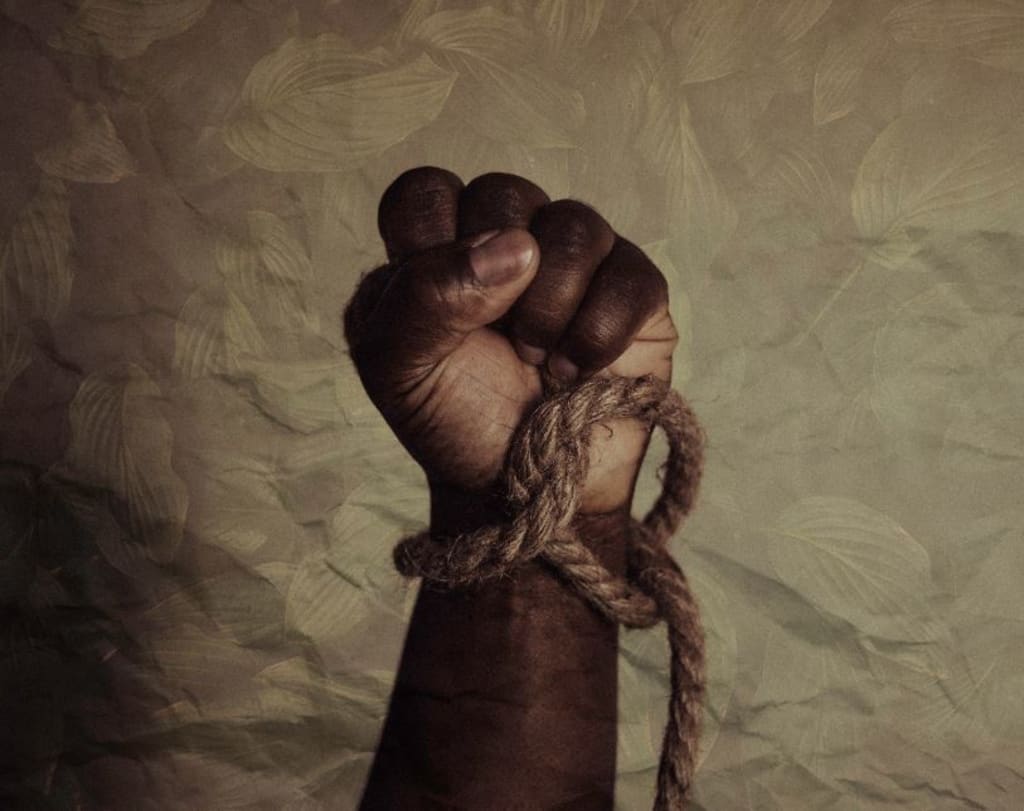THE PROTRACTED FIGHT AGAINST SLAVERY
The Fight to End Slavery

THE PROTRACTED FIGHT AGAINST SLAVERY
Millions of people have been enslaved against their will for centuries, making slavery a dark chapter in human history. From ancient societies to contemporary times, the cruel practice has existed in many different forms throughout history. Slavery still exists today in a variety of forms, even though it is now prohibited in the majority of nations. This article will examine the evolution of slavery throughout time and space, as well as how people have fought against it. So, fasten your seatbelts as we travel through one of humanity's darkest chapters!
Slavery: What is it?
Slavery is the act of possessing and using someone against their will for labour or other services. Throughout history, it has taken many different forms. While some societies have accepted it as a natural part of life, others have condemned it as immoral.
Many times, slavery involved taking people from various places and subjecting them to dreadful working conditions. When slaves attempted to flee or rebel against their masters, they were frequently punished harshly and treated more like property than human beings.
The transatlantic slave trade, which saw millions of Africans forcibly transported across the Atlantic Ocean to work on plantations in the Americas, is one of the most notorious instances of slavery. It took several centuries for this horrifying practice to be outlawed in 1807.
The majority of the world's nations have made slavery illegal, but it is still practised today in various forms, including forced labour, sex trafficking, and debt bondage. Despite efforts by governments and organisations to combat them, these practices still have an impact on millions of people around the world.
An Overview of Slavery's History
Slavery has been a feature of human history for many years, and it has existed in a variety of forms. People sold into slavery because of debt or poverty were frequently prisoners of war in ancient civilizations like Egypt and Rome.
Millions of Africans were forcibly transported across the Atlantic Ocean during the transatlantic slave trade in the 16th and 19th centuries to labour on plantations in North America, South America, and the Caribbean. European countries' desire for financial gain from the production of cotton, sugar, and tobacco propelled this cruel system.
Other forms of slavery, such as debt bondage, where people worked to pay off debts they could never repay, serfdom, which required peasants to work on land owned by nobles without pay, and forced labour imposed on political dissidents, existed in addition to chattel slavery, in which people are treated as property with no rights whatsoever.
As more people became aware of the crimes against enslaved peoples throughout the 18th and 19th centuries, the abolitionist movement grew in strength. Slavery was abolished in the British Empire in 1833 and in the colonies of France in 1848.
After a brutal civil war that was fought primarily over this issue, the United States abolished chattel slavery.
Although legal enslavement is now forbidden everywhere by international law, there are still many instances of modern-day exploitation, such as children working long hours for little pay or women who are coerced into sex trafficking. We must keep an eye out for these problems so that everyone can live in freedom, free from any form of oppression.
The various types of slavery
Slavery has existed in a variety of forms throughout history and is still present in some ways today. One of the most prevalent types of slavery involved the purchase and sale of individuals as chattel.
Debt bondage, where people are compelled to work to pay off a debt they will never be able to repay, is another type of slavery. This frequently occurs when employees are misled into taking out loans with exorbitant interest rates or when they are underpaid.
Another form of contemporary slavery is forced labour, which occurs when people are coerced into doing labour against their will by threats or physical force. This can occur in a variety of sectors, including manufacturing, domestic services, construction, and agriculture.
A common type of contemporary slavery that involves the exploitation and coercion of people for sexual purposes is called "sex trafficking." Before being forced to engage in sex acts against their will, victims may be seduced with false promises or kidnapped outright.
It's crucial to understand that even though some types of slavery have been outlawed by law, others are still practised today. It is up to us to become informed on this subject and take steps to permanently put an end to all forms of human enslavement.
Modern slavery
The term "modern slavery" is used to refer to several contemporary forms of forced labour. It affects people all over the world, including men, women, and children, and it manifests itself in a variety of ways. According to estimates, there are roughly 40 million people worldwide who are victims of modern slavery.
Bonded labour is one prevalent type of contemporary slavery. This entails contractual obligations that bind employees to their employers. Forced labour is another type, where people are compelled to work against their will or under duress.
In addition to modern slavery, human trafficking is regarded as a serious problem. People are moved around for exploitation purposes like prostitution or forced labour in this scenario.
Sadly, many cases of modern slavery go unnoticed and unreported because of its covert nature and lack of awareness. Nevertheless, organisations are working to combat this problem by providing support for survivors and advocating for tougher legal sanctions against offenders.
We must keep collaborating to put an end to these practices once and for all because no human being should ever experience such cruel treatment.
Eliminating slavery
Slavery was outlawed after a protracted, difficult war that lasted for centuries. Widespread campaigns to abolish slavery did not take off until the 19th century, especially in Europe and North America.
The abolishment of the transatlantic slave trade in 1807 was one of the most important turning points in the struggle against slavery. Although this action did not immediately put an end to slavery, it was a significant step in the direction of its ultimate abolition.
With time, more nations passed laws or changed their constitutions to make slavery illegal within their borders. For instance, the Slavery Abolition Act, passed by the British Parliament in 1833, freed all slaves throughout the British Empire.
Nevertheless, despite these legal modifications, many people were still kept as slaves because of a lack of enforcement or opposition from those who benefited from forced labour. Organisations like Anti-Slavery International didn't start tackling contemporary forms of slavery like forced labour and human trafficking until much later.
People are still being taken advantage of and treated like property all over the world today. Although there has been progress since chattel slavery was widespread throughout the world, there is still work to be done to guarantee that everyone is free from servitude and can live with dignity.
Conclusion
A dark period in human history, slavery has had a lasting impact on society. Through the ages, it has existed in a variety of forms, including debt bondage, forced labour, and chattel slavery. Numerous people have devoted their entire lives to the long and difficult task of ending slavery.
While legal slavery was abolished in the majority of nations by the middle of the 20th century, modern forms of slavery still exist today. Worldwide, forced labour, human trafficking, and other forms of exploitation continue to affect millions of people.
We must all be aware of this problem and work to put an end to modern slavery once and for all. We can start by educating people about these issues and advocating for change.
In our fight against slavery in all its forms, we must never give up. We can build a future where every person is free from exploitation and oppression by cooperating as a global community. Let's work to create a more just society where everyone has access to freedom, regardless of race or social standing.
About the Creator
Joshua .O. Edams
A content writer, a freelancer, a creator and a presentation expert.
Enjoyed the story? Support the Creator.
Subscribe for free to receive all their stories in your feed. You could also pledge your support or give them a one-off tip, letting them know you appreciate their work.






Comments
There are no comments for this story
Be the first to respond and start the conversation.